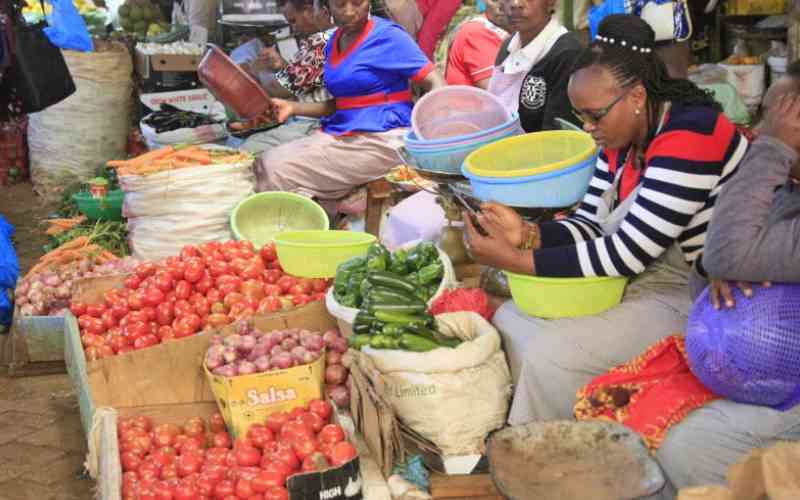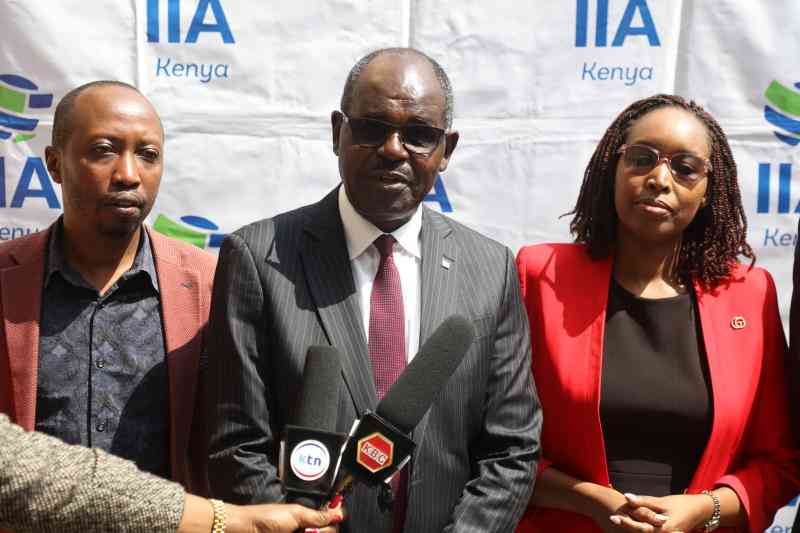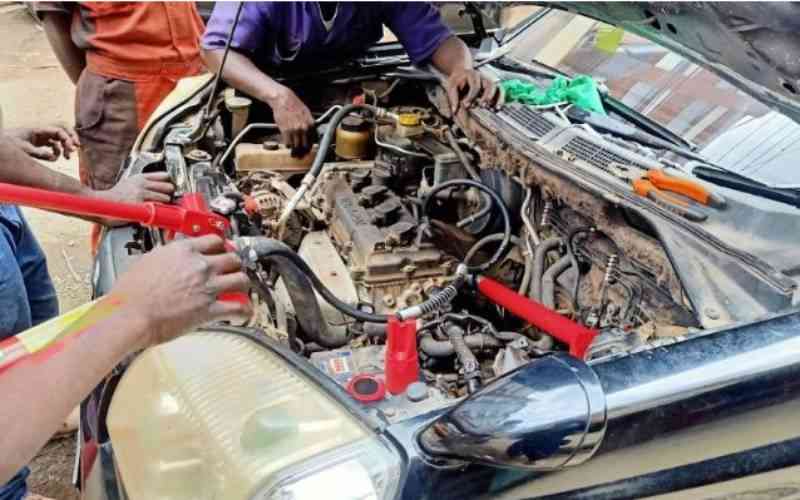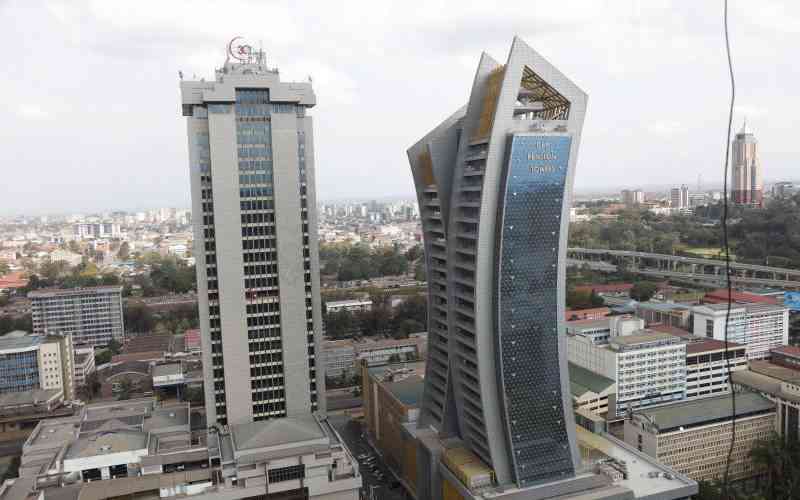Firewood are piled up on a donkey-pulled carts to be sold at the Dadaab refugee complex, northeastern Kenya, on April 18, 2018. [AFP]
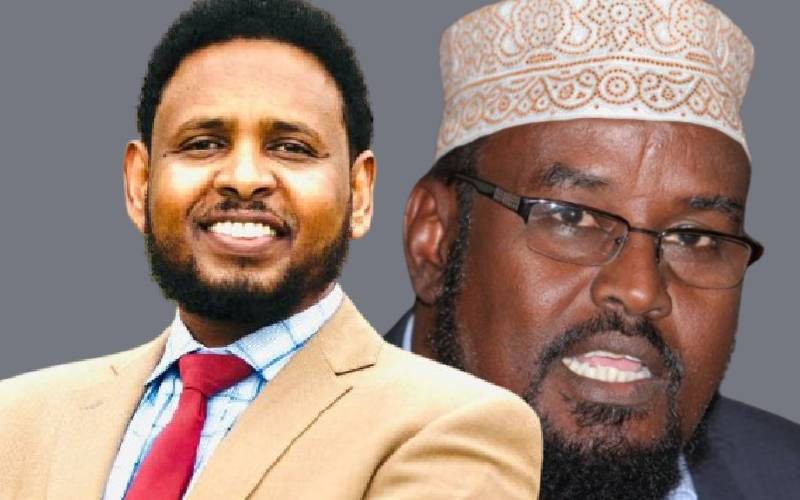
There was a sigh of relief in Mandera County when more than 5,000 refugees agreed to move out of schools in order to pave way for learning activities.
As third term begun there was anxiety among parents, teachers, learners and stakeholders that the occupation of the refugees in three schools could disrupt education at a critical period when students ready to sit for exams.
The refugees were being hosted by Kenya Red Cross Society at Barwaaqo Secondary School, Shafshafey Secondary School and Duse Primary School, all within Mandera town.
Last month, the Somali refugees crossed over into Mandera following violent conflicts between forces of Federal Government of Somalia (FGS) and those loyal to Jubaland administration that controls the disputed Gedo region.
The occupation of the refugees in the institutions was causing concern among parents and learners who were worried that they might not resume classes after schools opened for third term.
They left on Wednesday according to a senior police officer who told The Standard Saturday that they were given two options of either registering as refugees and taken to camps, or going back to Somalia.
“But they refused to register and decided to go back to Somalia but we’re getting reports that some have been accommodated by their Kenyan cousins. Meanwhile, the three schools have been fumigated, and learners reported today (Thursday),” said the officer who expressed fear that despite the current “deceptive” calm in Jubaland, hopes for ceasefire soon remain dim.
Mandera Deputy County Commissioner James Chacha confirmed learning activities had resumed, and there is no cause of alarm.
“The schools have opened, and currently the situation is calm; we haven’t witnessed any threats,” said Chacha.
According to International Organization for Migration (IOM) the situation had placed significant strain on already vulnerable households and overstretched the capacity of local support systems.
Communities residing near the border, as well as those within Mandera town, were directly affected by the spillover of conflict. As a result, thousands of Somalis fled their homes late last month, seeking refuge either with host communities or in temporary shelter sites across Mandera East Sub-County.
Such is the precarious situation Kenya finds herself in. Analysts and observers are concerns that should the war in Somalia persist, Kenya will soon be staring at a humanitarian crisis and renewed Al Shabaab threats.
According to Hassan Khaneje, an international security specialist, the conflict puts Kenya into a political quagmire and at the crossroads as it tries to engage in shuttle diplomacy between Federal Government of Somalia and Jubaland.
Stay informed. Subscribe to our newsletter
He is of the view that lasting peace will be in the best interest of Kenya, otherwise unstable Jubaland will create room for Al Shabaab militants to regroup and cause more damage in Kenya. Further, Kenya should not be seen to be taking sides in the conflict.
“If the conflict goes full-blown, there shall be a refugee influx in Kenya. Fundamentally, the conflict impacts not only on Kenya; but the regional security architecture. Uncertainty will result into an emergence and resurgence of non-state actors,” he noted.
Federal Government of Somalia and Jubaland are fighting over control of Gedo region occupied by the influential Marehan clan. The strategic region is under the grip of the Jubaland administration headed by Ahmed Mohamed Islam alias Madobe.
In recent months, the Federal Government of Somalia led by President Hassan Sheikh Mohamud has secured territorial and military control over key towns in Gedo; among them Beled-Hawa, Bardere, Garbaharey, and Buurdhubo, and Bardere.
ALSO READ: Somali refugees flee from frying pan to the fire
Jubaland, once earmarked as a critical buffer zone for Kenya against the spread of Al-Shabaab militancy, is now a battle zone with the spillover of the war being felt in Kenya where fleeing locals and armed soldiers seek refuge.
Madobe is facing mounting accusations of a destabilising conduct. The Federal Government of Somalia accuses him of not only unlawfully extending his mandate, but also of orchestrating attacks on federal troops and provoking armed clashes across Jubaland.
However, Kenya is the most exposed stakeholder in this conflict. Instability in Beled-Hawa, Dobley, and Kismayo directly affects Kenya’s national security.
Kenya is not taking chances; and from coming Monday, senior police officers from counties facing Al Shabaab threats converge in Mombasa for one week to lay counter-strategies.
“We shall be meeting in Mombasa to review our strategies because the situation in Somalia is not good,” said one of the officers. Some of the counties that have in the past experienced Al Shabaab attacks include Nairobi, Mombasa, Lamu, Garissa, Wajir and Mandera.
Kenya's position in the Jubaland transition is both critical and precarious. For over a decade, the country has played a pivotal role in Somalia’s stability, particularly through its backing of Madobe and its involvement in the AMISOM/ATMIS deployment in Jubaland.
At the height of Al Shabaab frequent incursions, Kenya in 2011 sent its military to Somalia. At the time, Madobe was viewed as a vital partner, capable of maintaining a buffer zone that would shield its frontier communities from Al-Shabaab threats.
Firewood are piled up on a donkey-pulled carts to be sold at the Dadaab refugee complex, northeastern Kenya, on April 18, 2018. [AFP]
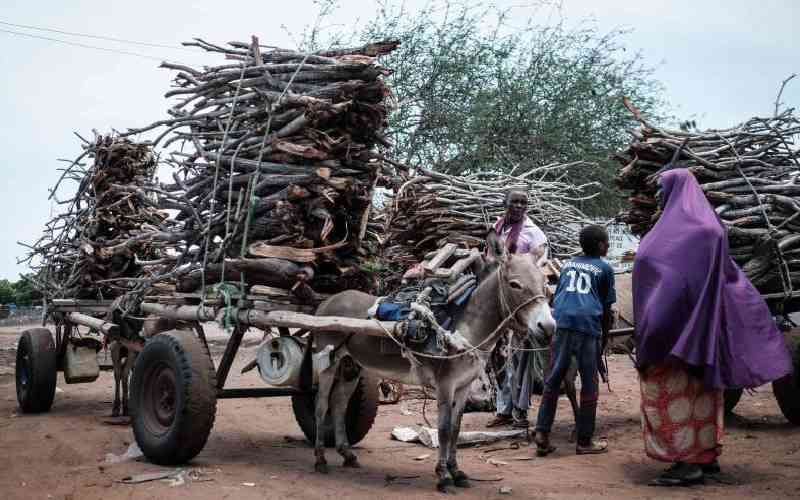
But recurrent and sporadic violence, defections within Jubaland’s security forces coupled with Madobe’s inability to maintain discipline or professionalism within his ranks has rendered the strategic partnership increasingly untenable.
With the Federal Government of Somalia seemingly gaining strategic momentum, Kenya signaled a significant shift when President William Ruto indicated his administration’s intention to work with Mogadishu.
Nairobi began to align its strategy with that of Mogadishu, acknowledging that stability could not be achieved under the current leadership in Kismayo, which is considered to be Jubaland’s capital city.
By May this year, Kenya reaffirmed its recognition of the Federal Government of Somalia as the sole and legitimate authority responsible for administering the affairs of Somalia, including its breakaway regional administrations, Somaliland among them.
“To advance the partnership, Kenya will maintain contact and relations with sub-national governments in Jubaland and Somaliland and, in consultation with the Federal Government of Somalia, establish contact and diplomatic presence as may be agreed from time to time to support security cooperation and commercial interests in line with the principles of mutual respect and good neighbourliness,” said the State Department of Foreign Affairs in a statement.
Madobe has been in power for 14 years having been re-elected in in November 2024 after receiving 55 votes out of the total 75 votes cast by Jubaland legislators.
His rivals in the presidential race, Abdullahi Ali, Abi Rage and Elias Gabose rejected the elections. The Somali Federal Government is pushing for universal suffrage set for this year.
The federal government wants federal member states among them Somaliland, Puntland, Khatumo, Galmudug, Hirshaabelle, South West and Jubaland to participate in the elections. But Madobe is not interested.
In his acceptance speech, Madobe emphasised the need for continued reconciliation among the people of Jubaland. He reiterated that since 2013, his administration has faced serious opposition, including armed violence.
He blamed the Somali Federal Government for orchestrating instability, asserting that Jubaland is part of Somalia, and not Kenya or Ethiopia.
He accused President Hassan using of military force to destabilise Jubaland and provoke civil war in the region while at the same time disrupting efforts to combat Al-Shabaab.
However opposition leader Dr Ali, blames Madobe for the war in Beled-Hawa, claiming it is Jubaland forces who initially took pre-emptive attacks against federal forces.
"The on-going conflict in Beled-Hawa could and should have been avoided. The attempt by Ahmed Madobe to cling to power through unlwafull means threatens not only the stability of Jubaland, but also the wider Horn of Africa region. His continued stay in office lacks legitimacy, as he has lost the confidence of the people of Jubaland and support of key security forces," said Ali.
He is calling on Kenya to work constructively with the Federal Government of Somalia, Ethiopia, and other regional stakeholders towards a peaceful and democratic transition of power in Jubaland.
"No individual should be allowed to jeopardize the peace and regional stability for personal gain. the future of Jubaland and the security of neighbouring countries including Kenya, depend on a legitimate, inclusive, and democratic process," added Ali.
ALSO READ: Repatriation of Somali refugees could take years, UNHCR warns
Omar Sheikh, a Kenyan governance expert, however, expressed disappointment at the approach taken by Kenya, saying the direct support of Federal Government of Somalia, might heighten rather than deescalate the conflict.
“Kenya should take a leading role in restoring peace, her partisan involvement will be detrimental to us. One, there shall be an influx into the country of refugees fleeing from Somalia, and secondly, Al Shabaab, which has been lying low for about three, will disrupt security in Garissa, Wajir and Mandera counties,” said Omar.
The conflict intensified last month when two military choppers carrying senior officials among them Abdirashid Hassan Abdinur landed in Balad Hawo town, which is close to the Kenyan border.
Formerly the minister of Security in the Jubaland administration, Hassan defected and was appointed Federal Government Somalia’s head of intelligence for Gedo – a move that fueled the violent confrontations.
Before the fall-out, the two forces had been fighting against Al Shabaab together. But the federal government has forged a different path, and now accuses Madobe of orchestrating the fighting.
The war has already claimed the life of Colonel Hussein Giif, the Jubaland police chief for Gedo in an assault by Federal Government of Somalia forces that left Several Jubaland soldiers dead and others injured at Tuulo Amiin village.
During the ambush targeting a miliary camp, some Jubaland soldiers managed to escape, fleeing to Kenya and Ethiopia.
Madobe’s apparent loss of legitimacy has been compounded by an erosion of financial and political support. It is understood, suspension of federal funding has deprived Jubaland of essential resources.
While international partners – once willing to engage with the semi-autonomous administration, have started to disengage, preferring to channel aid and political collaboration through Mogadishu.
Reports from the ground indicate many local administrations in Gedo – one of Jubaland’s most strategically important regions, have switched allegiances, abandoning Madobe and opting to report directly to the federal government.
This collapse of loyalty in Gedo underscores the waning influence of Madobe, a man who for over a decade projected himself as the strongman of southern Somalia.
While the Federal Government of Somalia is in control of Gedo, the Jubaland administration remains entrenched in the Lower Juba towns of Kismayo, Afmadow, and Dobley.


